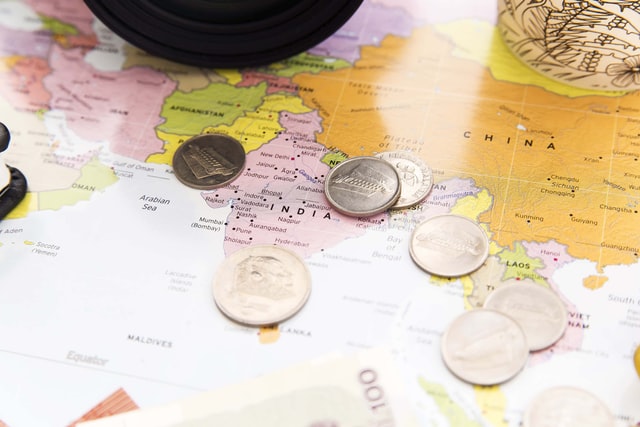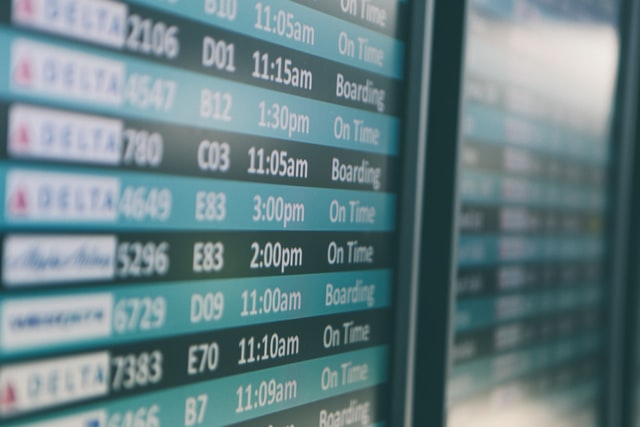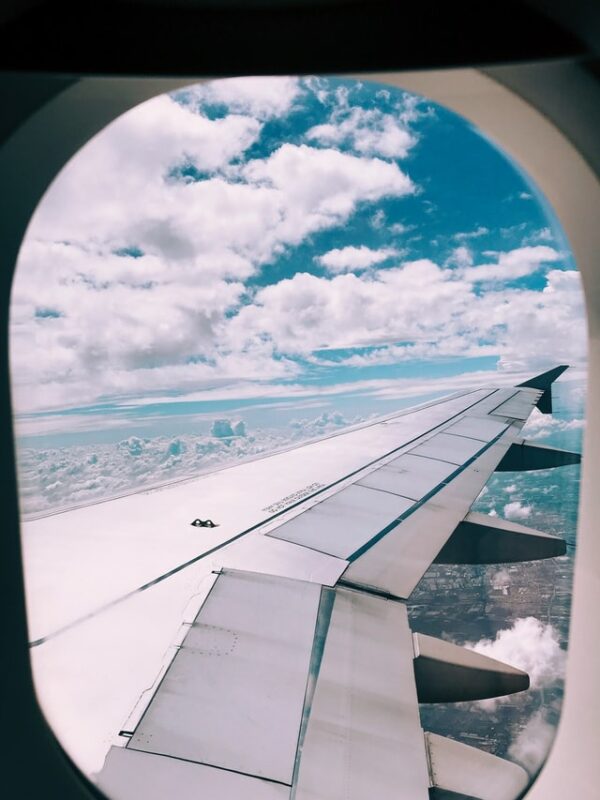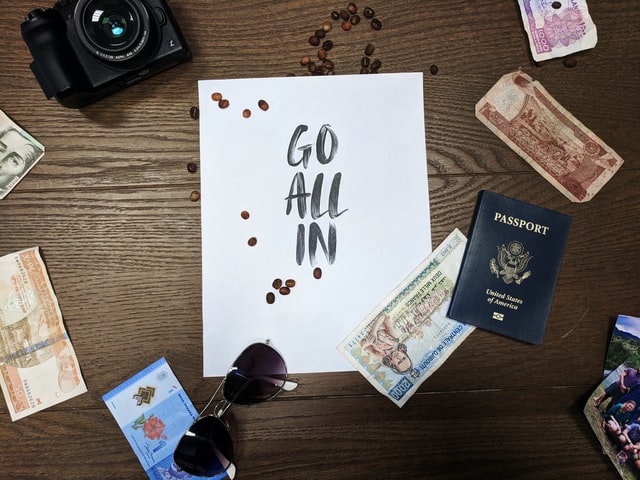
Traveling is awesome — seeing new sights, eating innovative foods, and spending time with other people. It’s one of the best ways to spend your time and money. But it can be expensive, leaving you with empty pockets and a lighter wallet. Thankfully, there are plenty of ways to save money on travel. Here are some tips to keep a bit of cash in your pocket while seeing the country or the world.
1.) Start planning early
The earlier you book your flight, the better. When it comes to airfare and hotels, prices fluctuate constantly and for many reasons. The more time you have to shop around (and the more attention you pay to those fluctuations), the better chance you’ll have to grab a great deal — whether that means booking six months in advance for flights or two months in advance for hotels.
2.) Fly on Tuesdays and Wednesdays

Flying midweek is a cost-cutting secret that most people don’t know about. When you’re looking at flights, take note of their departure and arrival times. Flights departing on Friday, Saturday, or Sunday tend to be more expensive than those departing on Tuesday or Wednesday. That’s because fewer business travelers fly over the weekend and more vacationers are flying then.
If you can fly midweek, you can save money by booking your travel for Tuesday, Wednesday, or Thursday to avoid peak airfare prices over the weekend.
3.) Use credit cards that offer bonus points for travel
Credit cards aren’t just for emergencies. Sure, you should use credit only for what you can pay back, but many credit cards offer special perks like airline miles, reward points, and even cash back on purchases. If you use one responsibly and pay your monthly balances in full, you can make it to your next destination sooner than you think.
Additionally, if you have a card with the right perks while traveling, it can save money on fees like foreign transaction fees or ATM charges — and get you a discount on some travel costs.
Before choosing a card (or two), make sure to do your research so that “saving money” doesn’t become “I hope I don’t buy too much stuff and end up racking up tons of interest!”
4.) Read the fine print when you book a flight to see if it is refundable or changeable
When you’re booking a flight, carefully read all the rules and requirements. Identify whether your ticket is refundable or if it’s changeable. Know what the cancellation policy is for the airline you’re traveling with, and know that most airlines won’t reimburse you for your hotel stay if your trip is canceled.
Understand what happens if your flight gets delayed or canceled. Do they offer hotel accommodations? What happens if you miss your flight because of a delay in an earlier leg of your trip? What happens if you need to change your flight because of illness or emergency? What happens if you need to cancel your trip altogether? Knowing the answers to these questions will help ensure you get reimbursed for any unforeseen expenses on both ends of the spectrum.
5. )Don’t purchase travel insurance through an airline

You may be tempted to buy travel insurance from the airline offering a discount on your flight. Don’t do it! Airline travel insurance usually has a lot of fine print and loopholes that can cause you more problems than they prevent. For example, airline travel insurance is not required to reimburse you if the airline goes bankrupt or changes your flight schedule.
In addition, airline-provided policies often require you to pay for the entire trip again if you need to cancel for any reason — even if you’ve only paid half of it so far. Instead, get your travel coverage from an independent company like InsureMyTrip or Travel Guard. You’ll typically have better — and much easier to understand — coverage at a lower price through these providers than through an airline’s website.
6.) Pack light to avoid baggage fees
Traveling light can save you a lot of money. Some airlines are notorious for charging extra on seemingly everything, including bags. These airlines also charge for carry-on baggage items that exceed their size requirements, which can often be as little as 18 inches by 14 inches by 8 inches (45 cm by 35 cm by 20 cm). If you don’t want your backpack or duffel bag taken from you before getting on the plane because it exceeds the permitted dimensions, purchase a bag that meets the carry-on dimension requirements of the airline you’re flying with. Along with saving money, this will prevent hassles related to lost or damaged luggage.
Pack clothes that don’t wrinkle easily and can be used multiple times without looking dirty or worn out. Dresses and nice shirts tend to wrinkle easily and can only be used for one day at a time before you need to wash them (unless they’re black). Wearing clothes multiple times between washes means you need to pack fewer items, which makes traveling lighter much easier. It also will save time and reduce stress during the packing process. It might seem like common sense, but many people overpack unnecessarily because they think they need more than they actually do and they end up not using most of it.
7.) Skip expensive restaurants for light meals

Buy bottled water, snacks, and toiletries at the local grocery store rather than buying them in your hotel to save money. The reusable bag will save you money (and the environment) when it’s time to check your luggage. Use your own devices or hot spot instead of paying for in-room WiFi when you stay at hotels.
You may have noticed that sometimes hotels charge up to $20 a night for what can be spotty WiFi service. That’s money you could use for something more fun like amusement park tickets! So, instead of giving the hotel your hard-earned cash, use your own hot spot if you have one, or even better, use the data on your phone and turn it into a hot spot. It’s easy to do, and you’ll save a ton of money on this service.
Try not to eat meals at restaurants near tourist destinations because they are more expensive than local spots farther away from the crowds. Tourists are an easy target for restaurants looking to make extra money. If you’re willing to walk a few blocks, you can often find much better food at local prices.
It’s not good for the local economy if everyone is funneled into a few tourist-oriented spots. It’s more fun to experience the city like a local, and that includes eating where the locals do.
There are many ways to save money on travel if you plan ahead. Organization is key! As the adage goes, “failing to plan is planning to fail.” With careful organization and a little pre-planning, you can save a lot of money on your travels. Here are other tips:
- Use rewards credit cards to accumulate points for free flights.
- Use travel aggregator sites like kayak.com or skyscanner.com to compare prices between airlines and airports before booking a flight to get the cheapest price available.
- If you’re going on an international trip, don’t exchange your currency at the airport; it’s more expensive than exchanges in town or online through an established exchange company like Xe.com.
The Bottom Line
Ultimately, there are many ways to save money when traveling. It depends on how much you’re willing to sacrifice. Planning is the most important thing. Research your destination thoroughly before you leave and find the methods of travel that will cost the least money possible. Enjoy your next vacation without straining your budget.



